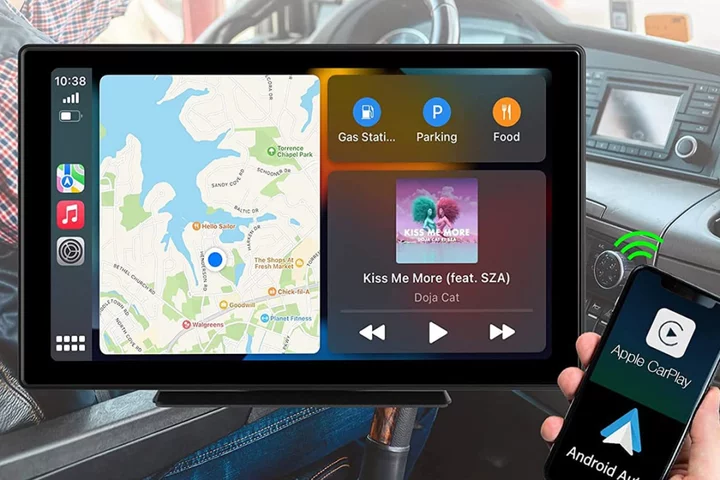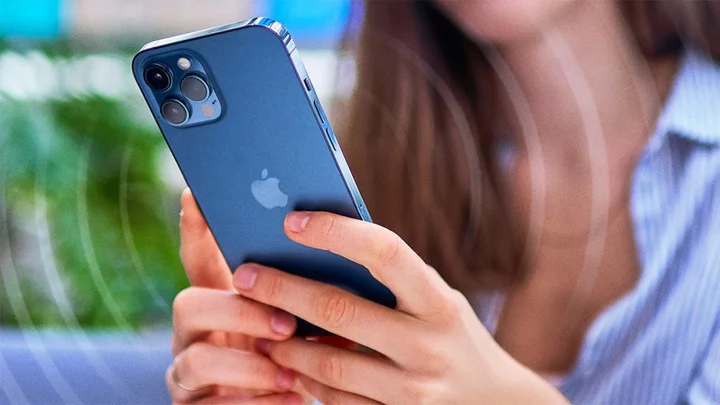Here’s a question: What would you do if your partner left their phone on the table and exited the room? Would you be tempted to have a look? Would you even notice it there? Or do you already peak behind their back?
If you thought yes to any of the above you’re not alone. A significant number of people in relationships have snooped at least once, and many say they don’t regret it.
In 2018, Kate* was in a serious relationship with another woman. Both in their early 20s, they’d been together for four years and were living together. On paper, they were deeply entwined in each other’s lives, but the reality is they were emotionally distant and a few fights away from a relationship breakdown.
"Towards the end, I had a bad habit of picking little fights which obviously made things very strained," Kate explains. As she pulled away, her girlfriend tried to hold onto her and the relationship more, which in turn left Kate feeling suffocated. Exhausted and drained, Kate distracted herself with friends, and became closer to one she calls Sarah. "My girlfriend then accused me of cheating on her with Sarah."
SEE ALSO: Should you get back together with an ex?What started as a kernel of worry exploded into a chronic lack of trust and toxic paranoia. Kate’s girlfriend, unknown to her, had begun digitally snooping on her. She’d started surveilling her text messages, Instagram, Twitter and Facebook messages behind her back. Her girlfriend had also secretly downloaded the Find My app onto Kate’s phone and added herself so she could track her without Kate’s knowledge. Determined to avoid an unnecessary fight, Kate had begun to lie to her girlfriend when asked about plans or communication with Sarah, not realising she was getting caught out each time.
Her girlfriend had also secretly downloaded the Find My app onto Kate’s phone and added herself so she could track her without Kate’s knowledge.Snooping is the act of going through someone’s phone or items without their knowledge or consent. Whilst some people would say it’s an automatic relationship deal breaker or a betrayal of trust, others argue it’s an essential tool when you’re in a dysfunctional relationship. A 2019 YouGov survey found that nearly one in five Americans has gone through a partner’s phone without permission, and of those people 73 percent did not regret it. What are the ethics and unsaid rules of snooping? And is it ever okay to check a partner’s phone?
When snooping reveals trust issues
The situation with Kate and her girlfriend came to a head when her now ex confronted her on the phone whilst she was out with several other friends, including Sarah. She’d found "proof" Kate had vented to Sarah about their dysfunctional relationship and demanded she come home immediately or they were over. Kate refused, and her ex packed her things in the middle of the night and left.
Want more sex and dating stories in your inbox? Sign up for Mashable's new weekly After Dark newsletter.
Looking back at their relationship, the 27-year-old is sympathetic to her ex whilst still maintaining her snooping was extremely wrong. "I think it was her reaction to an intolerable situation, and I wasn’t giving her any reassurance or being very emotionally forthcoming," she says.
"She loved me a lot and was scared of losing me, so it turned into this really extreme snooping behaviour to try and take back control of the situation." Kate says she can’t excuse what her ex did, but she can understand the part she played in creating the situation.
Years on, Kate is still deeply impacted by her ex’s behaviour however. She cannot stand anyone so much as glancing at her phone, and she feels she overcompensates in relationships with honesty. She says she over-shares an unnecessary level of detail, she believes, in the hope it will stop people from feeling like they have to dig for further information. It’s a "pretty draining" pattern, she says.
Most people agree that snooping is unacceptable — Pew Research Centre found that 70 percent of Americans stated this opinion — but 34 percent of people in a relationship said they’ve looked through a partner’s phone without their knowledge. Why?
"As a behaviour, snooping will usually be linked to individuals who have a vulnerability of mistrust," says Dr. Elena Touroni, a consultant psychologist and co-founder of The Chelsea Psychology Clinic. She went on to say that it’s likely to stem from an internal belief that people aren’t to be trusted and a partner is extremely likely to cheat.
"The behaviour is about self-protection and managing a deep-seated anxiety," she explains. Even in a scenario where you have no reason to doubt the relationship, then someone is likely pushed to snoop because of this template. If a relationship isn’t healthy, then snooping is a response to external triggers, she says. "That said, it’s still an unhealthy way of coping and there are better ways of addressing the issue."
Touroni’s position on snooping is clear: It is never acceptable. Whilst there are reasons that make it more understandable, such as prior infidelity or a partner behaving in a way to destabilise trust, she says "it doesn’t necessarily make it OK or acceptable — just more understandable."
The people who stand by their snooping
But for every person who has been snooped on, there is someone on the other side who felt compelled to do it.
Leila snooped on an ex-boyfriend’s phone in 2015 and discovered he was in love with someone else. "He kept talking about this girl at work, comparing me to her, bailing on me to hang out with her and always texting her," she says. She asked him multiple times if he had a thing for his colleague, but "he would say I was being insane and it felt like I was going insane."
In her second year of university at the time, this was Leila's first serious relationship, and she had little knowledge of what was normal and abnormal with a partner. The situation came to a head when she saw a message flash up on his phone whilst he was in the shower.
"I opened it and he had been messaging his best friend saying he was in love with the girl but she had a boyfriend.""He got a message from his mate saying ‘just tell her the truth’. I opened it and he had been messaging his best friend saying he was in love with the girl but she had a boyfriend," she says. Devastated, she confronted her ex and ran out of his house, but they reunited again after he convinced her she had misunderstood the situation. A month or so later, he ended things with Leila and jumped into a relationship with the colleague in question. "They’re now married," Leila says.
To this day she has no regrets over snooping on her ex. "It was the best decision," she says. "I haven’t done it since, but I’ve never felt the need to."
So, why are some people compelled to snoop on their partners? Hilda Burke, psychotherapist, couples counsellor and author of The Phone Addiction Workbook, says snooping is indicative of a lack of trust. The only exception, she explains, is when someone gives their partner permission to check their phone after breaching their trust. But in this case, the snooping would be consensual.
For some couples who agree on this as their boundary, they might say it’s okay to check it but they both have to be present so it’s not behind their back, she adds. "When permission hasn't been given it is most certainly an invasion of privacy," she says. But in a case like Leila’s, where she went looking for information and found it, Burke believes they ‘knew’ on an intuitive level that infidelity was happening.
A gut feeling proved right
Whilst Leila had a hunch something wasn’t right and needed evidence to bolster her gut feeling, the risk with snooping is that you might find something worse than you imagined or unexpected information. That’s what happened when Alisha checked her now ex’s phone while he was in the shower out of curiosity. She had never done it before then. "I realised he was back in touch with his ex, which didn’t bother me," she says. "What did bother me was seeing he’d sent her messages like ‘I’ll always have a thing for you.'"
She knew she was in the wrong for snooping, so rather than confront him with what she’d found out, she internalised the information and began to withdraw from the relationship. Six months later the pair broke up. On the surface it was because they’d stopped working well together, but Alisha finally shared that she had snooped and found her ex exchanging heartfelt messages to his ex. "He was shocked," she says.
For some people, snooping has been the thing that eradicated their trust in future partners and created a newfound fear of being surveilled. For others it’s been an essential way to find out the truth about their partner and their own relationship. Does this fact ever make it okay?
"What did bother me was seeing he’d sent her messages like ‘I’ll always have a thing for you.'"So how do you instigate boundaries around snooping? Burke says it’s best to be explicit from the beginning of a relationship. "For instance, if you've been affected by a partner going through your phone without permission, let your new partner know that this is a red flag for you," she says.
Similarly, if you’ve found evidence of cheating through snooping previously, she says "it might be best to speak to your partner about this and establish where both your boundaries lie."
In a world where we live half our lives on our phones, it feels easier than ever to be unfaithful thanks to apps and social media. It’s no surprise that snooping is as prevalent as it is, but perhaps honest communication, when done properly, would naturally remove people’s urge to become detectives in their own relationships?
*Some names have been changed to protect privacy.









